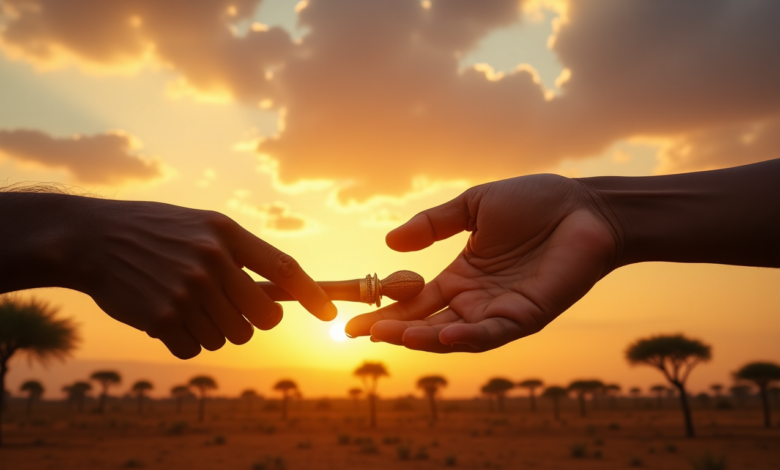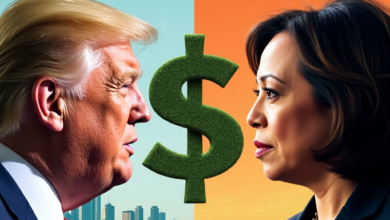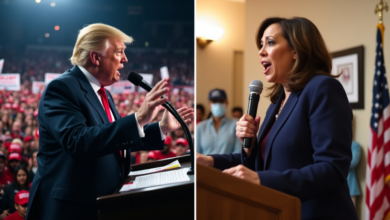
Botswana proudly holds the title of Africa’s longest-running democracy. The country’s recent peaceful transfer of power has barely made headlines internationally. President Mokgweetsi Masisi’s smooth handover to his successor marks one of the most important milestones in African governance. Many wonder why such positive developments in African democracy often slip under the radar.
Botswana’s governance model and steadfast dedication to democratic principles shine through its multiple peaceful transitions. Their soaring win story provides a great way to get insights about pluralism and good governance that other African nations can learn from. The historical roots of Botswana’s democracy run deep, and the 2024 election carries special meaning that deserves more attention in global conversations.
The Historical Context of Botswana’s Democracy
Botswana has managed to keep a unique democratic model rooted in traditional governance systems since its independence in 1966. The British colonial period’s indirect rule approach helped preserve local authority structures and traditional decision-making processes that became the foundation of the country’s democracy.
The Kgotla system stands as a traditional forum that shows the country’s steadfast dedication to participatory democracy. This system remains a crucial platform that enables:
- Public consultation and deliberation
- Consensus-building in decision-making
- Local-level conflict resolution
- Constitutional review processes
The Botswana Democratic Party (BDP) altered the map of the nation’s politics from independence until 2024. Leaders like Seretse Khama and Quett Masire helped the country stay on its democratic path despite regional challenges. Botswana showed remarkable resilience through the turbulent 1970s and chose to arrange itself with democratic principles while neighboring states struggled with political upheaval.
The country’s democratic values reached beyond its borders through its role in the Frontline states coalition in 1977. Military threats from both Rhodesia and South Africa did not deter Botswana from its democratic path. The nation emerged as a beacon of stability in a troubled region.
The 2024 Election: A Turning Point
Botswana’s political world changed forever in October 2024. The Umbrella for Democratic Change (UDC) achieved a historic win that ended the Botswana Democratic Party’s (BDP) 58-year rule. Harvard-educated human rights lawyer Duma Boko led the UDC to victory by securing 36 seats in parliament and establishing a clear majority.
Voters showed their concerns about the country’s economic challenges. The unemployment rate rose to 28% while economic growth dropped to 1% in 2024. The diamond market showed poor performance and youth unemployment reached 38%.
President Mokgweetsi Masisi demonstrated democratic maturity through his graceful acceptance of defeat. “We got it wrong big time in the eyes of the people,” he said and started the handover process immediately. The peaceful transfer of power ended with Boko’s swearing-in ceremony where he stressed how this democratic achievement would shape history.
Political analysts praised this smooth transition. They pointed to Botswana’s strong institutions and steadfast dedication to pluralism. This peaceful power handover proves the country’s democratic strength, especially when such smooth transitions rarely happen in the region.
Reasons for Limited International Attention
Western media’s limited coverage of Botswana’s peaceful power transition reflects broader changes in global media focus and international relations. British news organizations have shown less interest in African affairs since Brexit. This reduced coverage has created a major gap in reporting democratic developments across the continent.
The media oversight stems from multiple factors:
- Western nations’ domestic audience priorities
- Stories that focus on conflicts rather than peaceful transitions
- Changes in geopolitical interests toward economic partnerships
- Other global events competing for media attention
New international dynamics make media coverage more complex now. China has become Africa’s biggest trading partner and their trade volumes are a big deal as it means that they exceed BWP 3817.94 billion by 2023. Economic partnerships and infrastructure projects have taken center stage as international focus moves away from political developments.
Media organizations choose stories that strike a chord with their home audiences. This approach has led to fewer reports about Africa’s democratic achievements. News organizations look for stories their primary audiences can relate to. They often miss important political developments that don’t immediately connect with their viewers. Botswana’s remarkable democratic milestone received minimal attention because of this selective coverage approach.
Implications for African Democracy
Botswana’s successful move to democracy sends a clear message throughout Africa. It shows how peaceful power transfers can work through robust institutions. Political analyst Piers Pigou points out, “Botswana’s pedigree in democratic practice serves as a crucial lesson for the region where such reflections of pluralism are largely absent.”
The country’s democratic wins matter deeply to its neighbors:
- Demonstration of institutional resilience
- Proof that peaceful transitions are achievable
- Example of effective checks and balances
- Model for independent judiciary systems
Botswana’s democratic journey faces real challenges that other African nations should think about carefully. Recent drops in transparency scores and worries about corruption show why democratic institutions need constant protection. These issues remind us that democracy needs continuous care and protection, even in systems that are decades old.
The UDC’s victory means more than just new leadership. It shows how democratic power changes can succeed in Africa. This transition breaks away from the story of endless one-party rule that many African nations know too well. The second major ruling party in southern Africa lost its majority recently, after South Africa’s ANC. This radical alteration points to a wider regional move toward true multi-party democracy.
Botswana’s peaceful transfer of power shows evidence of strong democratic institutions in Africa. Their success challenges common beliefs about political instability on the continent. Through robust institutional frameworks, genuine democratic transitions remain achievable. President Masisi’s graceful exit and UDC’s historic victory provide great lessons about democratic resilience and political maturity that neighboring nations can learn from.
Democracy in Africa keeps evolving. Botswana leads by example instead of just words. The country’s democratic experience showcases how traditional governance systems blend naturally with modern democratic principles to build stable democracies. Their story reveals that peaceful transitions need more than strong institutions. They just need political will, public trust, and steadfast dedication to democratic values. These combined elements make Botswana’s achievement not just an African win but a global democratic success that deserves wider international recognition.





